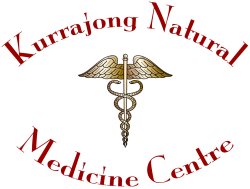Medicinal Herb: Lavender (Essential oil)
Lavender (Essential oil)
Biological Name:
(Lavandula angustifolia, formerly known as L. officinalis or L. vera)
Family:
Lamiaceae
Other Names:
Lavender, garden lavender, spike lavender, common lavender

Introduction:
Lavender plants are aromatic evergreen small shrubs native to the Mediterranean region, the Arabian peninsula, Russia, and Africa. The plant has small blue or purple flowers. Fresh flowering tops are collected, and the essential oil is distilled or extracts are obtained by extracting with solvents. Lavender is cultivated extensively for use as a perfume, in potpourri, and as an ornamental [1].
Active Compounts:
Traditional Uses in Herbal Medicine:
The essential oil extracted from lavender is highly valued in Aromatherapy. Carminative, anti-spasmodic, anti-depressant, antibiotic (e.g.: Staphylococcus aureus, Escherichia coli, Candida albicans & Trichophyton rubrum [2]), anti-fungal, rubefacient, emmenagogue, hypotensive, stimulant, aromatic, fragrant.
This beautiful herb has many uses, culinary, cosmetic and medicinal. It is an effective herb for headaches, especially when these are related to stress. Lavender can be quite effective in the clearing of depression, especially if used in conjunction with other remedies. As a gentle strengthening tonic of the nervous system it is used in states of nervous debility and exhaustion. Use it to soothe and promote natural sleep. Externally the oil may be used as a stimulating liniment to help ease the aches and pains of rheumatism and aids in wound healting [1].
Essential oil of Lavender can also be used on burns to the skin to aliviate pain and reduce tissue damage.
Lavender extract can be used to treat conditions ranging from acne to migraines. Although the plant has been known to increase bile flow output and flow into the intestine, its greatest value is not in the treatment of liver conditions. Lavender has been used extensively for diabetes in parts of Spain and is included in some commercial herbal antidiabetic preparations. Fresh leaves and flowers are applied to the forehead to relieve headaches and to joints to treat rheumatic pain. The vapors of steamed flowers are used as a cold remedy. Chileans drink the tea to induce or increase menstrual flow [1].
Combinations : For depression it will combine well with Rosemary, Kola or Skullcap.
Scientific Evidence for Efficacy
Clinical Trials
In this meta-analysis of randomised controlled trials, lavender essential oil significantly reduced anxiety and depression better than placebo or no treatment, although inconsistencies were seen in significances; treatment sessions and health state increased anxiolytic effects.
Kim 2021
Lavandula angustifolia decreased depression scores compared to control in a review of randomised controlled studies. Effects were marginally more effective in those with diagnosed depression, statistically significant in those with concomitant depressive symptoms, and most effective with oral administration.
Firoozeei 2021
In a double-blind, randomized, controlled setting, inhalation of Lavandula angustifolia essential oil reduced pain scores in premature babies (N = 61).
Usta 2020
In a randomized, placebo-controlled trial (N = 50), aromatherapy with Lavandula angustifolia oil reduced post-dural puncture headache, induced by spinal anesthesia, immediately after the treatment, with scores compared to baseline in favor of the placebo at other time intervals.
Nasiri 2020
In a double-blind, randomized pilot study (N = 45), Lavandula angustifolia (2 g/d) alleviated mild to moderate depression comparably to fluoxetine (20 mg/d) and Melissa officinalis (2 g/d).
Araj-Khodaei 2020
Lavender (Lavandula angustifolia)-scented steam inhalation increased sleep quality and quality of life in menopausal women (N = 57) with sleep deprivation problems.
Gürler 2020
In a randomized crossover placebo-controlled trial, aromatherapy with Lavandula angustifolia essential oil improved sleep quality, mood (depression) scores, and quality of life in patients (N = 37) with type II diabetes mellitus and insomnia.
Nasiri Lari 2020
In a randomized controlled trial, inhalation of Lavandula angustifolia essential oil induced significant changes in blood pressure and reduced peri-operative anxiety in dental patients.
Karan 2019
In a pre-experimental, quantitative study, Lavandula angustifolia aromatherapy (8 sessions, lasting 4 weeks) significantly increased blood melatonin levels in older adults (102.3?±?33.4 vs. 132.5?±?42.3 pg/ml, p?=?0.000004).
Velasco-Rodríguez 2019
Compared to placebo, Silexan, a proprietary L. angustifolia essential oil significantly reduced the total scores of the Hamilton Anxiety Scale and Pittsburgh Sleep Quality Index after 10wks in a double-blind, randomized study. These anxiolytic effects exerted a secondary sleep improving effect.
Seifritz 2019
Lavender angustifolia essential oil was more effective than lemon balm essential oil in reducing Cohen-Mansfield Agitation Inventory physical non-aggressive behavior in nursing home residents with dementia.
Watson 2019
Aromatherapy massage with Lavandula angustifolia and Pelargonium graveolens (geranium) essential oils, diluted in neutral cream at the concentration of 1% each, significantly reduced heart rate and blood pressure levels in Brazilian surgical center nursing staff.
Montibeler 2018
Aromatherapy and massage with Lavandula angustifolia, Citrus sinensis, and Citrus bergamia essential oils (2:1:1) improved depressive symptoms in Chinese community-dwelling older adults in a prospective, randomized controlled trial.
Xiong 2018
According to a systematic review, one quality clinical trial (10 weeks, 523 patients) showed superiority of Lavandula angustifolia extract over placebo in the treatment of generalized anxiety disorder.
Barić 2018
Adding Lavandula officinalis or a placebo to venlafaxine therapy, for six weeks, further ameliorated depression in subjects at an Iranian university clinic, compared to venlafaxine alone; however, there was no difference between the L. officinalis and placebo groups.
Nikfarjam 2017
A 4-wk aromatherapy treatment with lavender essential oil (L. angustifolia) improved sleep and quality of life in career women (24-55 yrs), in a randomized controlled trial. A blended essential oil exhibited greater dual benefits compared with either lavender essential oil or acupressure massage.
Kao 2017
According to the discussed results of two double-blind, placebo-controlled trials, the therapeutic range of silexan, a substance from Lavandula angustifolia with shown efficacy in the treatment of anxiety, may be 80-160 mg/day, with doses up to 160 mg well-tolerated.
Kasper 2017
In a randomized controlled trial, inhalation of linalyl acetate (1%) for 20 min was more effective than L. angustifolia essential oil (1%) or vehicle for relieving pain and urinary residual sense of indwelling catheters in patients after colorectal cancer surgery.
Yu 2017
Aromasticks, prepared with Boswellia carterii (frankincense), Citrus reticulata (mandarin), and Lavandula angustifolia essential oils, improved sleep quality assessed by a Likert scale in cancer patients with sleep disturbances.
Dyer 2016
Aromatherapy with lavender oil reduced pain and anxiety levels in patients undergoing post-surgery chest tube removal.
Hasanzadeh 2016
Lavandula angustifolia essential oil showed antifungal activity against Candida albicans isolated from vaginal discharge samples from patients with vaginal candidiasis, in vitro.
Behmanesh 2015
In a randomized trial, Silexan, a patented preparation of L. angustifolia essential oil, administered orally, improved anxiety scores in patients with anxiety-related restlessness and disturbed sleep, with higher numbers of patients responding and achieving remission, compared to the placebo.
Kasper 2015
Inhalation of Lavandula angustifolia, together with sleep hygiene, improved sleep quality in college students with self-reported sleep issues, (n=79) compared with sleep hygiene alone, with no differences in sleep quantity between the groups. Lillehei 2015
Aromatherapy massage with the essential oils of Lavandula angustifolia and Pelargonium graveolens decreased heart and respiratory rates in patients with personality disorders during their psychiatric hospitalization. [Article in English, Portuguese] Domingos Tda 2015
In a randomized, double blind crossover study, Silexan, a patented preparation of Lavandula angustifolia essential oil, approved in Germany for the treatment of anxious mood-related restlessness, reduced serotonin-1A receptor binding potential, compared with a placebo in healthy volunteers (n=17).
Baldinger 2014
In a randomized, d/b, d/d trial 539 adults with generalized anxiety disorder (GAD) received 160 or 80 mg Silexan, 20 mg paroxetine, or placebo once daily for 10 wk. Silexan showed a pronounced antidepressant effect and improved general mental health and health-related quality of life.
Kaspar 2014
In a randomized clinical trial of 96 female students from Tehran University suffering from primary dysmenorrhea, students who inhaled L. angustifolia essential oil had greatly reduced symptoms compared to those who inhaled sesame oil only. Raisi Dehkordi 2014
In a double-blind, randomized, controlled trial, inhalation of a L. angustifolia essential oil tended to increase systolic and diastolic blood pressure and statistically significantly reduced respiratory rate, in female patients with urinary incontinence undergoing urodynamic assessment (n=43).
Seol 2013
2 cups of an infusion of 5g dried Lavandula angustifolia along with Citaopram offered positive therapeutic effects on depressed patients and decreased patients mean depression score as compared with patients taking Citalopram only. Nikfarjam 2013
Inhalation of Lavandula angustifolia oil 10 minutes significantly decreased depression-dejection and confusion, by the POMS scale, via increase in parasympathetic nervous system activity, in women experiencing mild to moderate subjective premenstrual symptoms, during the late-luteal phase.
Matsumoto 2013
A review of 7 clinical trials found the anxiolytic effect of Silexan, an encapsulated 80 mg of L. angustifolia oil, was evident after 2 weeks. Patients’ Hamilton Anxiety Scale total score decreased between 10.4 ± 7.1 & 12.0 ± 7.2 points at Wk 6 & between 11.8 ± 7.7 & 16.0 ± 8.3 points at Wk 10.
Kasper 2013
Aromatherapy with Lavandula angustifolia essential oil decreases the number of required analgesics following tonsillectomy in pediatric patients.
Soltani 2013
A neurophysiologically active, high-purity, 30% oil of Lavandula angustifolia did not reduce the frequency of physically agitated behaviors, or improved the subjects’ affect, compared to the control, when administered topically to nursing home residents with dementia.
O’Connor 2013
50 patients with neurasthenia, post-traumatic stress disorder, or somatization disorder received 1 × 80 mg/day Silexan over 6 wks. Results showed the von Zerssen’s Depression Scale decreased by 32.7%, the SCL-90-R Global Severity Index by 36.4% and the SF-36 Mental Health Score increased by 48.2%.
Uehleke 2012
In a randomized, double-blind clinical trial (n=48), a cream with a 2:1:1 essential oil blend of L. officinalis, clary sage & marjoram applied daily to the lower abdomen provided significant relief for outpatients with primary dysmenorrheal & reduced duration of menstrual pain from 2.4 to 1.8 days.
Ou 2012
In a systematic review of 15 randomized clinical trials evaluating the efficacy of lavender for the reduction of stress/anxiety, the results of 7 trials favored Lavandula angustifolia over controls for at least one relevant outcome.
Perry 2012
In a comparative trial of 70 patients w/acute external otitis, patients randomly received either Lamigex, a product from Syzygium aromaticum, Lavandula angustifolia and Geranium robertianum essential oils, or ciprofloxacin. Both groups showed similar improvement and reduction in microorganisms.
Panahi 2012
Aromatherapy with a 2% dilution of a blend of rose otto and Lavandula angustifolia essential oils ameliorated anxiety and depression in high-risk postpartum women.
Conrad 2012
Review of 3 randomized, double-blind clinical trials on the efficacy of silexan in subsynromal anxiety disorder. Patients treated with silexan showed average HAMA total score decreases between 10.4 ± 7.1 and 12.0 ± 7.2 points at week 6 and between 11.8 ± 7.7 and 16.0 ± 8.3 points at week 10.
Kasper 2010
A multi-center, double-blind, randomized study using the Hamilton Anxiety Rating Scale demonstrated that Silexan, an oral L. angustifolia oil capsule preparation, is as effective as lorazepam in adults with Generalized Anxiety Disorder.
Woelk 2010
A randomized, double-blind, placebo controlled trial of 221 adults suffering from anxiety disorder found that an encapsulated L. angustifolia oil product, Silexan, offered significant improvement on quality and duration of sleep and general mental and physical health.
Kasper 2010
Details the methods of a proposed double-blind randomized cross-over trial to test the effectiveness of topically applied pure Lavandula angustifolia oil in reducing actual counts of challenging behaviors in nursing home residents.
van der Ploeg 2010
Study participants who inhaled an essential oil blend of Citrus limonum, L. angustifolia and Cananga odorata (2:2:1) showed a noticeable difference in systolic blood pressure and sympathetic nervous system activity compared to participants given similar artificial fragrances . [Article in Korean]
Cha 2010
Among several salivary biomarkers, a significant difference was not observed for the control and the 3 wt% test samples, however, the alpha-amylase activity (AMY) was decreased by inhalation of the 1 wt% test samples of L. angustifolia and Citrus aurantiumin 15 young, healthy females.
Yamaguchi 2009
In a small pilot study, topical application of the essential oils Lavandula angustifolia and Salvia sclaria decreased perception of stress level in intensive care unit nurses during three 12-hour worked shifts.
Pemberton 2008
Lavendula angustifolia essential oil was used in combination with an Ayurvedic medicated sesame oil as a dripping treatment called Shirodhara in 16 healthy females. Lavender Shirodhara showed potent anxiolytic effects.
Xu 2008
In a cross-over randomized trial of 70 Chinese older adults with dementia in Hong Kong, Lavandula angustifolia (lavender) was found to be effective as an adjunctive therapy in treating agitated behaviors.
Lin 2007
In a randomized placebo-controlled trial, abdominal massage with a mixture of two drops of Lavandula officinalis, one drop of clary sage, and one drop of Rosa centifolia in 5 cc of almond oil, ameliorated menstrual cramp severity in female college students (n=67).
Han 2006
Lavandula angustifolia created an improvement of -2.5 points in Pittsburgh Sleep Quality Index in volunteers with defined insomnia. Women and younger volunteers with a milder insomnia improved more than others.
Lewith 2005
It is indicated that the olfactory properties of the essential oils from Lavandula angustifolia and rosemary can produce objective effects on cognitive performance, as well as subjective effects on mood of healthy volunteers.
Moss 2003
A 4 week double-blind, randomized trial with forty-five adult outpatients shows the combination of imipramine and Lavandula angustifolia tincture was more effective than imipramine alone in the management of mild to moderate depression.
Akhondzadeh 2003
References
- https://www.drugs.com/npc/lavender.html
- Khoury, M., Stien, D., Eparvier, V., Ouaini, N., & El Beyrouthy, M. (2016). Report on the Medicinal Use of Eleven Lamiaceae Species in Lebanon and Rationalization of Their Antimicrobial Potential by Examination of the Chemical Composition and Antimicrobial Activity of Their Essential Oils. Evidence-based complementary and alternative medicine : eCAM, 2016, 2547169. https://doi.org/10.1155/2016/2547169
Disclaimer
Disclaimer information for users of the Kurrajong Natural Medicine Centre, Namaste Yoga Kurrajong and The Herbal Health Coach website.
Page last updated: 26th June 2020
Information provided for education and research information only
The information on this website is presented by Kurrajong Natural Medicine Centre for the purpose of disseminating health information free of charge for the benefit of the public.
While Kurrajong Natural Medicine Centre has exercised due care in ensuring the accuracy of the material contained on this website, the information on the site is made available on the basis that Kurrajong Natural Medicine Centre is not providing professional advice on a particular matter.
This website is not a substitute for independent professional advice. Nothing contained in this site is intended to be used as medical advice and it is not intended to be used to diagnose, treat, cure or prevent any disease, nor should it be used for therapeutic purposes or as a substitute for your own health professional’s advice.
Kurrajong Natural Medicine Centre does not accept any liability for any injury, loss or damage incurred by use of or reliance on the information provided on this website.
Quality of information
Kurrajong Natural Medicine Centre makes every effort to ensure the quality of the information available on this website and updates the information regularly. Before relying on the information on this site, however, users should carefully evaluate its accuracy, currency, completeness and relevance for their purposes, and should obtain any appropriate professional advice relevant to their particular circumstances. Kurrajong Natural Medicine Centre cannot guarantee and assumes no legal liability or responsibility for the accuracy, currency, completeness or interpretation of the information.
The material may include the views or recommendations of third parties and does not necessarily reflect the views of Kurrajong Natural Medicine Centre or indicate a commitment to a particular course of action.
Links to other websites
This website contains links to other websites which are external to Kurrajong Natural Medicine Centre. Kurrajong Natural Medicine Centre takes reasonable care in selecting linking websites but Kurrajong Natural Medicine Centre accepts no responsibility for material contained in a website that is linked to this site. It is the responsibility of the user to make their own decisions about the accuracy, currency, reliability and correctness of information contained in linked external websites.
Links to external websites are provided for the user’s convenience and do not constitute an endorsement or a recommendation of any third party products or services offered by virtue of any information, material or content linked from or to this site. Users of links provided by this site are responsible for being aware of which organisation is hosting the site they visit.
Views or recommendations provided in linked sites may include the views or recommendations of third parties and do not necessarily reflect those of Kurrajong Natural Medicine Centre or indicate a commitment to a particular course of action. .



